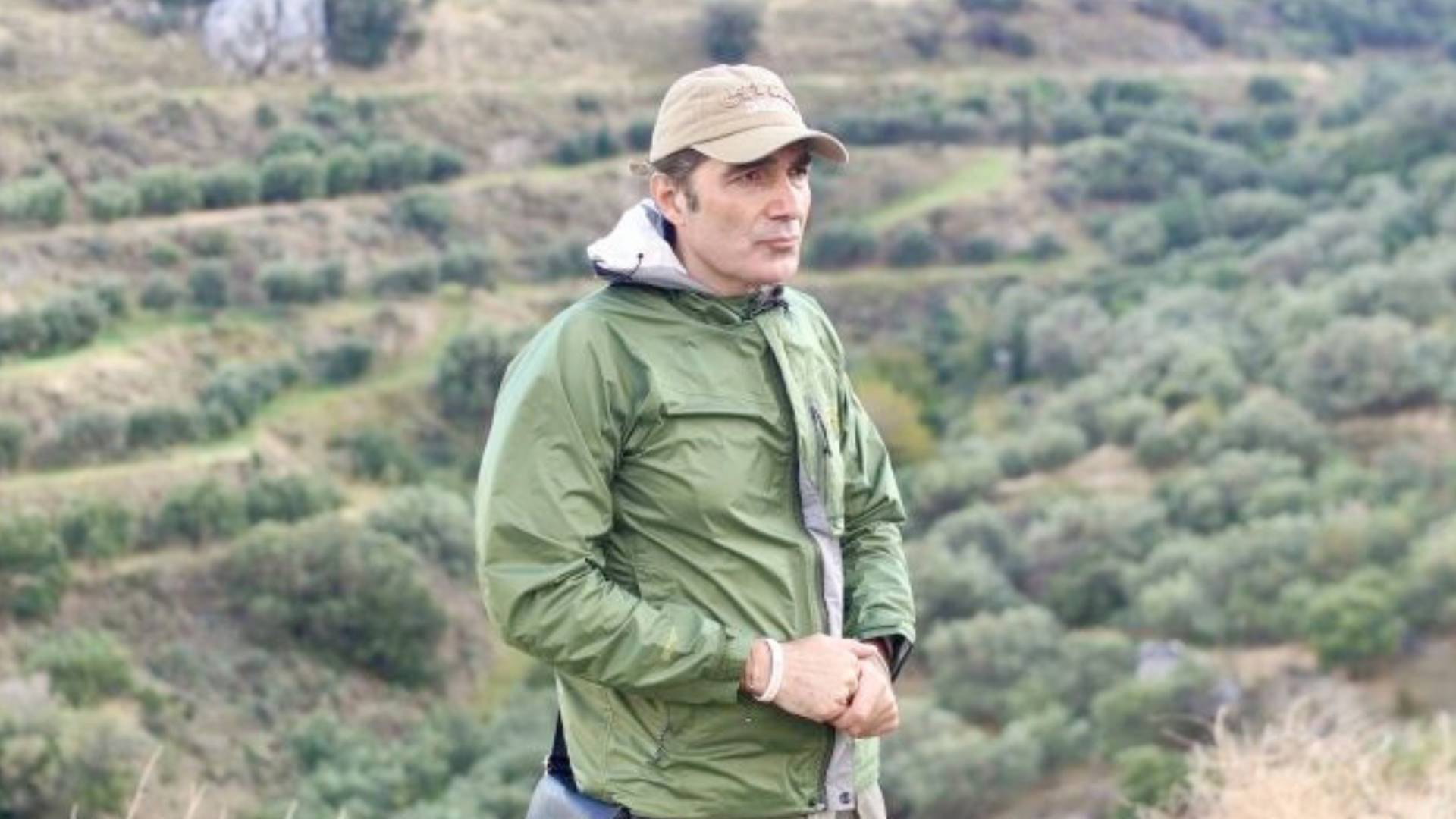By Ilias Karagiannis
Throughout his cinematic journey, Kostas Haralambous has focused on illuminating the essential rather than the obvious. He searches for the hidden pulse behind each story, digs beneath the surface for detail, and turns his characters into mirrors of ourselves.
Whether narrating the intense Tied Red Thread or adapting the work of Nikos Kazantzakis for the screen, Haralambous’ approach remains deeply human.
In Kapetan Mihalis, the director faced an almost impossible challenge – to capture in images the passion, anguish, and freedom of the Cretan soul.
This daring artistic offering did not remain confined within Greek borders. This year, it flies freely, like the Cretan spirit itself, crossing an ocean to open the Greek Film Festival in Sydney and Melbourne (14–26 October 2025).
Haralambous approaches this milestone, as he tells The Greek Herald, with “honour and emotion,” expressing his gratitude to the Greek Australian community who will experience his work.
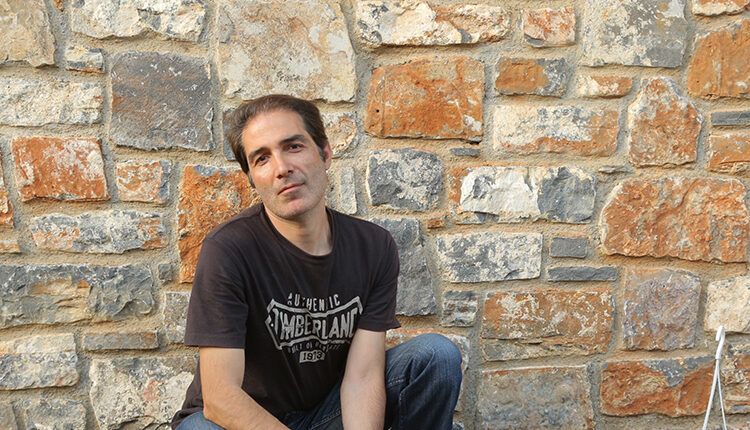
Though he has not yet visited Australia, he says, with reflective candour, that he carries it within him as a mythical realm – a personal Tlön of Borges, built from images, stories and legends, now waiting to be measured against reality.
Speaking of the film, which will premiere at the Greek Film Festival on 14 October, he explains that its core lies not only in the 1889 Cretan Revolution but also in the unexpected courage of Emine, a woman who embodies the timeless strength of female freedom.
With studies in dramaturgy and many years of experience in Greek cinema, Haralambous knows that honesty is the only language that truly reaches the audience.
It is from this same honesty that our conversation begins – with a filmmaker who dares to dream of great stories, reflecting on cinema, Kazantzakis, and the magical distance between imagination and reality.
The film Kapetan Mihalis opens the Greek Film Festival in Sydney and Melbourne. What does this premiere before the Greek Australian community mean to you?
Distributing and screening a film in Greece is already an achievement. So, when you have the fortune for your film to cross an ocean, what greater honour could there be? I sincerely thank the organisers of the Greek Film Festival in Sydney and Melbourne for selecting my film. I am delighted that Kapetan Mihalis will be screened at the festival within such a vibrant and active community.
Kapetan Mihalis is inseparably tied to Greek history and to Kazantzakis’ vision of freedom. How did you attempt to convey this timeless idea on screen?
The greatest challenge for me was to translate Kazantzakis’ epic novel — written, as the author himself notes, so that the world of 19th-century Crete would not be lost — without sacrificing its human dimension.
I chose to focus on the unique “square” of characters: Emine and the three men (Captain Michalis, Polyxingis, Nouribeis) who attempt to define her. The absolute independence of Emine, a scandal in her time, places the novel at the forefront of modern thought, recognising woman’s supremacy as a decisive force in the destiny of men.
Around this human axis, we developed the failed 1889 uprising and the struggles of the Cretans for self-determination and independence from Ottoman rule. We did not seek to make a postmodern film but to preserve the novel’s historical core — placing at its centre the human being, with all his passions, doubts, and contradictions. Ultimately, the pursuit of freedom is not only political; it is also a continual, personal struggle.
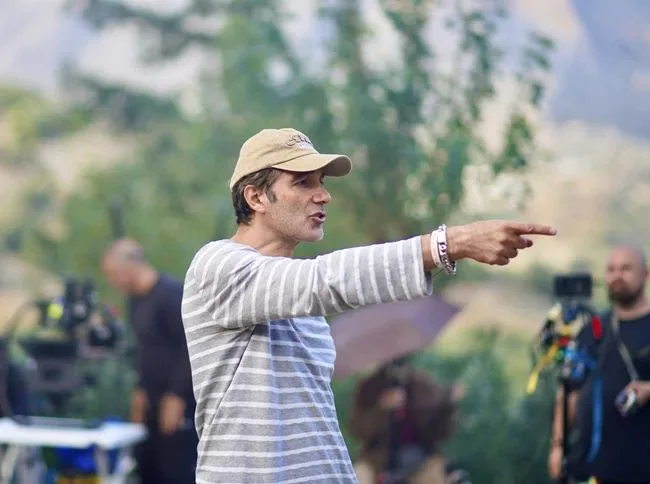
Adapting such a great literary work is always a challenge. What was the greatest obstacle you faced, and how did you overcome it?
Aside from financial difficulties, our greatest challenge lay in recreating the physical movements of the year 1889. Today, all of us have dexterity in our fingers because of technology — something entirely absent then. As Kazantzakis wrote, they had “thick hands,” trained on the hoe and the pruning knife.
This seemingly small detail reveals an entire rhythm of life long lost. It is a movement grounded in the earth, rooted in ancestors, and imbued with a ruggedness far removed from today’s refined modernity.
To capture this, our actors had to forget technology and rediscover an organic relationship with their bodies and the soil beneath them.
Through Kapetan Mihalis, Kazantzakis speaks of passion, freedom, and the Greek soul. Which of these messages do you find most relevant today?
In all of Kazantzakis’ work, passion, freedom, and the Greek soul are intertwined. The Greek soul emerges through what Kazantzakis calls “manliness,” the quintessentially masculine expression that unites passion and freedom — or, in other words, the freedom to serve one’s passions.
Yet in Kapetan Mihalis, Kazantzakis also bestows this quality upon Emine, a woman unafraid to claim her own passionate freedom. In this sense, she too embodies the Greek soul — seeking freedom with passion and living passion with freedom.
What Kazantzakis captures so powerfully is the impulsive nature of the Greek: that for a single moment of recklessness, a point of honour, or a heartfelt “damn it,” one might destroy all that has been built through years of struggle.
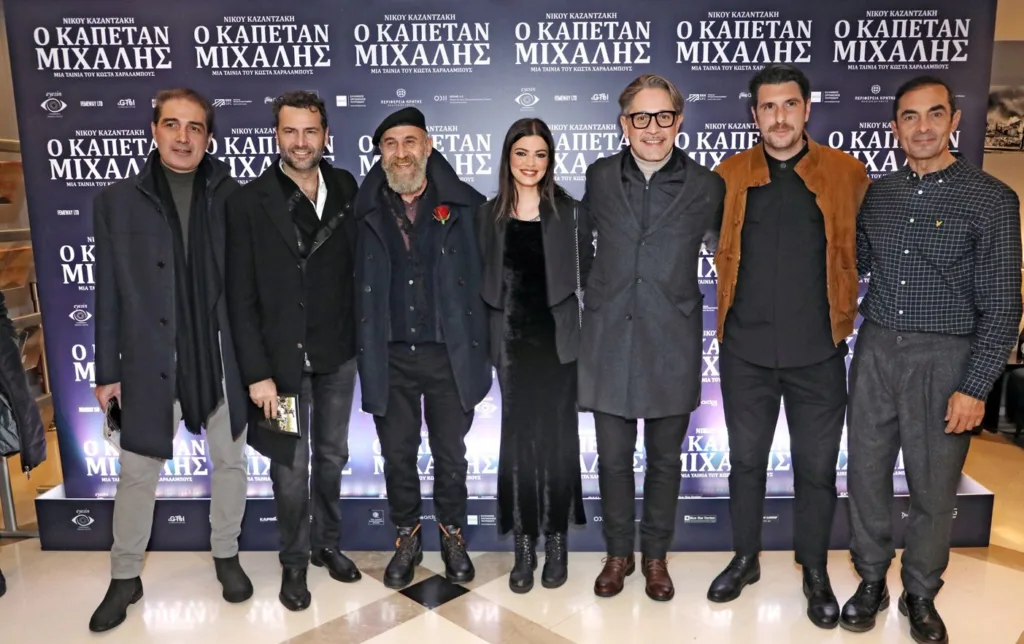
The Greek Film Festival is a celebration of Greek culture in Australia. In your view, how important are such events for preserving and promoting Greek identity in the diaspora?
Such events are precious beacons. In the vast ocean of globalisation, where people risk losing their roots and identity, the Hellenism of the diaspora builds strongholds that keep us connected to our traditions. Diversity is the strength of globalisation; uniformity is its great weakness.
The Greek Film Festival is not merely a successful institution but one of these beacons. With its devoted organisers and engaged audiences, it proves its worth year after year. I am deeply grateful to be part of it.
The film is now debuting in Australia. Have you ever visited the country?
Unfortunately, never. Australia is, to me, a mythical land — a Tlön of Borges. Though I have never visited, I have constructed it in my mind: its red deserts, its unique wildlife, its modern cities, and the boundless vastness that inspires awe.
It exists within me as a world built piece by piece — like a fantastic encyclopaedia. One day, my imagined Tlön will meet the real Australia. Then I will discover whether the images I hold within me align with reality, or whether the reality is even more magical than my imagination.
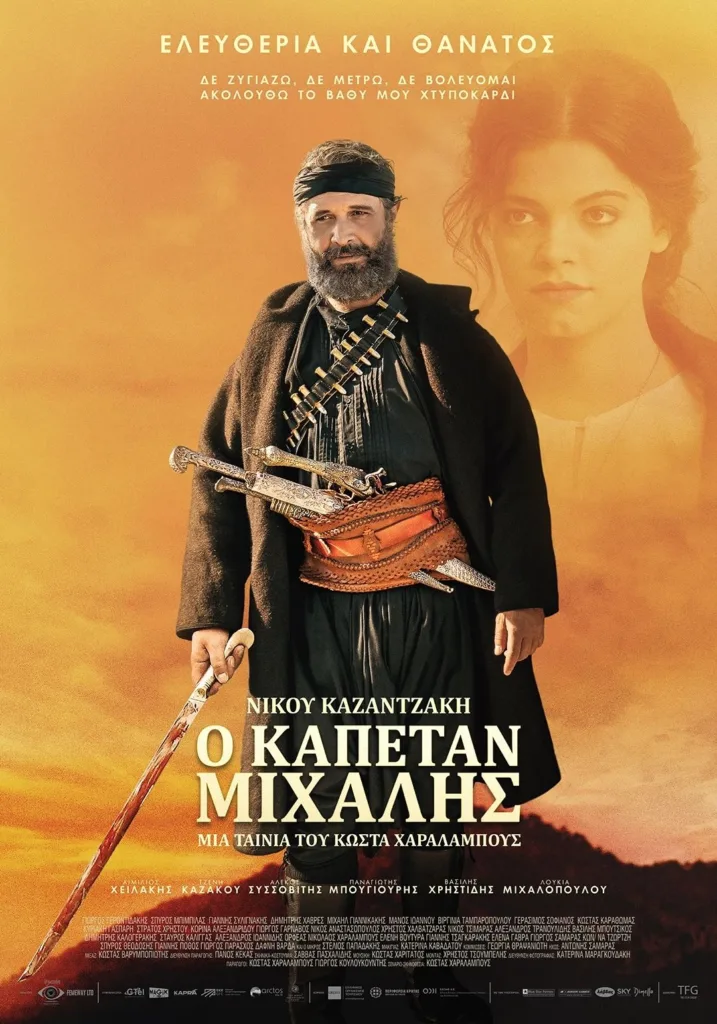
After such a demanding production as Kapetan Mihalis, what are your next plans? Is there another project already underway?
This November, I will begin my next film, titled Obolos (The Coin). It tells a story that delves into the darker sides of the human soul. It begins when a group of friends wins a large lottery prize — an event that forces them to confront the worst versions of themselves.
Through this story, I explore the cynicism and lack of empathy surrounding us today, showing how even a simple success can reveal the “evil” hidden within. The film is expected to be completed by the end of 2026.
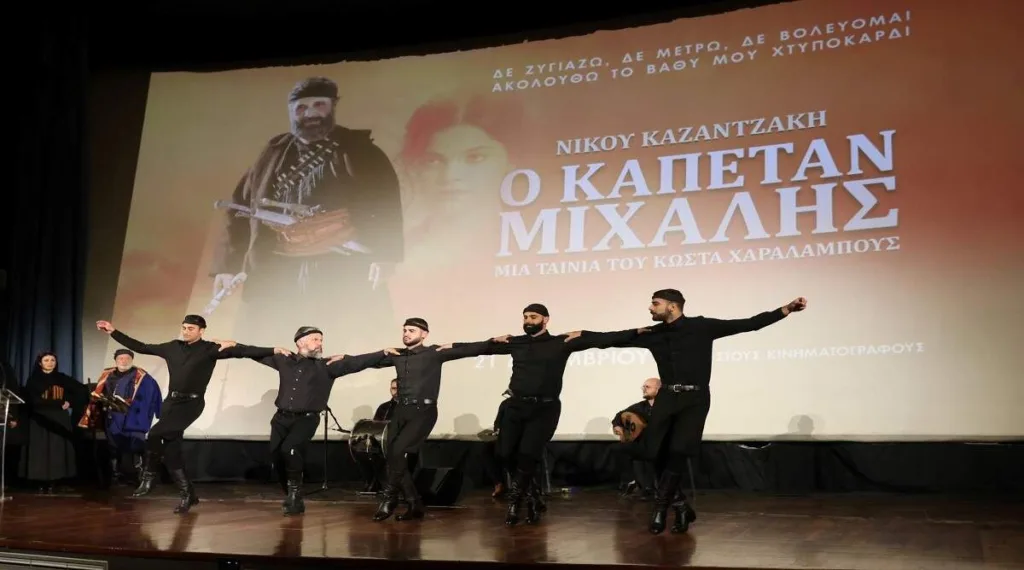
As a filmmaker with many years of experience, what do you consider the most crucial element in creating a film that truly resonates with audiences, in Greece or abroad?
I don’t believe there is a single defining element. For me, the key is honesty. Success takes many forms — some films speak to a few, others to many — but the most important goal is to remain true to yourself.
I hope the emotion and truth I put into my work reach the viewer. I continue to do what I love, with consistency and passion, accepting both success and failure as part of the journey.
